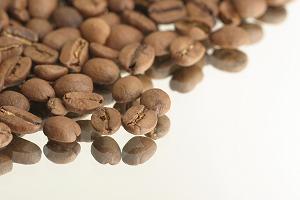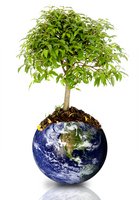Fair-Trade-Coffee
Why Should We Care About Organic Coffee?
Fair-trade-coffee certification supports organic farmers and ensures decent livings for coffee-farmers and their families. Think about how important your morning coffee is to you, and how much more it is to those who provide it for you.
Why should "coffee" be of any concern at all to those of us who just love our cofee?
Well, first of all, it's the second highest world commodity.
Secondly, the people who work so hard to produce it need to be looked after fairly and decently in the way of wages.
Thirdly, it's an issue of the environment.
Originally, coffee-farming has been done beneath shade trees. These trees provided shelter, protection and homes to birds and various other forms of wildlife.
Eventually as technology advanced in the the field of agriculture, so did the destruction of the major forests. Trees were cut, chemicals and pesticides were pumped into the soil to accommodate "sun cultivation."
This kind of farming has lead to a number of environmental problems such as water and soil contamination from pesticides. Wildlife habitats have been destroyed.
The small farmers do not farm like this. They don't have the funds to farm using chemicals or the financial means to clear forests.
They have relied on sustainable-farming-methods for generations and still do as part of their family heritage and traditions. They genuinely care about the lands, and are intent upon keeping them pure and natural for future generations to come.
These farmers are also not getting their fair share price for their crops.
For as much as these coffee farmers care and are concerned, so are more and more consumers, conservationists and others in the coffee business.

Fair-trade-coffee certification assures quality through the process of independent monitoring of work conditions and fair wages paid for the products.
The requirement for certification varies worldwide, but there are general standards to adhere to that cover a number of categories like growing, how the product is stored, how it is processed, packaged and shipped.
Synthetic chemicals must be avoided. The farmland must be chemical-free for a certain period of time previous. Detailed paperwork must be done. Organic products must be isolated from non-certified products. The farms are subject to inspection periodically.
Unless the product falls under fair trade certification, there is no way to assure that the farmers receive any benefits from this process.
Companies like Green Mountain Roasters among others, want to encourage these types of sustainable farming, and make sure that any new technologies and techniques for organic farming are passed on to the farmer through incentives.
Green Mountain Coffee Roasters is a specialty company in Vermont, which began in early 1981. They offer hundreds of coffee selections, including fair-trade certified and organic certified. They contribute heavily to support socially responsible initiatives. They produced in 2006 an all-natural hot drink cup, which is natural and renewable. In 2007, they were recognized by the Specialty Coffee Association for their efforts and were given the Sustainability Award.
Green Mountain has been number one on the list of the "100 Best Corporate Citizens."
The popular Keurig Coffee Company became a wholly-owned subsidiary of Green Mountain and together they work towards social responsibility.
Consumers want to be assured this is happening as well.
Afterall, organic farming is being demanded all over the world. People want to be assured that the product they are consuming is safe, and they truly care about the people who are producing the products and the state of their living conditions.
This is also an issue in regard to fair-trade-chocolate. Child labour is a huge concern.
Did you know that trafficked children, thousands in fact, are working on overseas plantations in order to process over 40 percent of the world's cocoa bean crop?
This is how cocoa is produced, and how families live day to day.
Where things come from and how we buy them, presents the opportunity to greatly improve the lives of others.
Hundreds and hundreds of restaurants are offering fair-trade-coffee certified products to their customers, and this means that the farmers in other countries such as Asia, Africa and Latin America are being paid fairly, and that these crops are produced with environmentally friendly techniques.
For more information on Fair Trade, and all of the
Facts On Coffee
visit here.

There are steps the consumer can take to support fair-trade-coffee and certification.
Start asking where the coffee comes from where you shop.
Ask if they sell fair-trade-coffee certified, and be clear that you will only purchase those products. If they don't supply it, ask if the vendor can start to supply it, otherwise you may have to shop elsewhere.
Ask for it in chain grocery stores and at your local restaurant.
Demand gets attention.
Leave Fair-Trade-Coffee, Return To Kitchen Carbon Footprint
Return To Carbon Footprint Defined Home Page

Thanks For Your Support
Green Maven!

Popular Tips
Recycling Tips
Garage Sale Tips
Laundry Room
Green Travel
The Company Money
Eco-Baby Gift
Make A Diaper Cake







